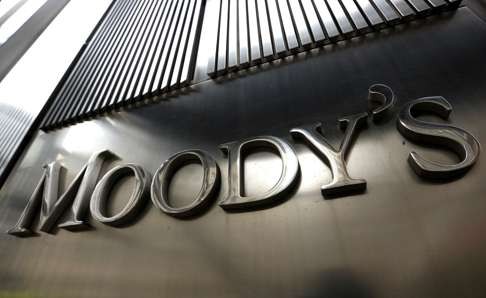China’s Dagong Global Credit mounts challenge to ‘big three’ rating agencies
Dagong Global Credit is in the throes of global expansion, poaching star analysts from global rivals and opening new offices, as part of its bid to add a ‘Chinese voice’ to global ratings

Dagong Global Credit Group, a 22-year-old mainland credit rating agency with global ambitions, has upped the ante in its bid to compete with the “big three” with a plan to expand bureaus outside China and poach analysts from the ranks of rivals like Standard & Poor’s and Fitch Ratings.
Rather than challenge global agencies by relying on its historical strength in rating mainland companies or cross-border yuan-denominated debt issuances, Dagong executives said the focus of its international expansion is to compete head on in the big three’s traditional turf of rating “G3 credit” issuances by international companies – in dollar, yen and euro.
To that end, founding chairman Guan Jianzhong, who has 100 per cent control of Dagong, is funding a global expansion with his personal fortune. Outside of mainland China, the company already has offices in Hong Kong, Milan in Italy and Frankfurt in Germany, and has mapped out new destinations for offices to be opened this year, including Kuala Lumpur, Malaysia and Moscow, Russia.
“Dagong is here to compete with the big three. I can’t say we are at the same level yet, but we believe in the years ahead, in time, we can move closer,” said Jonathan Hu, Dagong’s senior director of business development. “We have a niche position where we are because we ‘get’ China [and] we have exposure with the [emerging and peripheral] countries where the big three aren’t covering well at all.”
In Hong Kong, which serves as its Asia headquarters, Dagong has just hired Tony Tang, most recently S&P’s director of greater China, corporate ratings, as its head of corporate ratings. In other recent hires, Warut Promboon, a well-known figure in Asia’s credit trading community, who previously served as Societe Generale’s research director of Asian credit trading, is Dagong’s chief rating officer, while the Hong Kong office is now led by Simon Choi, former head of research technology for Goldman Sachs.
Terry Zhang, associate managing director and a longtime Dagong employee from Beijing, is spearheading the location search as part of its international expansion.
“In the 1990s, when the big three came to Asia, they developed a lead in terms of expanding services to investors...they built their credit system. They urged the market to look at their ratings because this was the credit market they built all the way from the US,” explained Hu.
“We have a huge data pool on Chinese companies. If you are a foreign investor, it makes sense for you to hear a Chinese voice when companies issue in US dollars. I don’t see that global financial markets have heard enough Chinese voices, especially in the credit market,” he said.
Dagong is drawing from its 22 year history in China, where it has rated some 51,000 issuances by 1,100 mainland Chinese companies. The company believes its database gives it deeper insight when analysing and forecasting companies from other emerging markets, which enables it to produce more in-depth risk profiles of these companies.

Such moves drew recognition from international leaders, including Shaukat Aziz, the former Pakistani prime minister who had a career as an economist and senior banker at Citi, who now serves on Dagong’s strategic advisory board. In another case Dominique de Villepin, former prime minister of France, has jointly penned research papers with Dagaong’s chairman advocating the need to develop an “Eastern view” to credit ratings.
The company has also joined an international working group within the International Capital Market Association (ICMA) which will shortly unveil a prototype “Silk Road bond” template for easing issuance of bonds for infrastructure and project financing under the “One Belt One Road” scheme. The same working group also previously spearheaded the “green bond” initiative in China.
“There are names and projects along the Belt and Road countries that are marginalised in international capital markets,” said Dagong’s Zhang. “We certainly have a role to play here in these types of opportunities, to give a solid judgement to their credit profile so they can make better connections with the international capital markets.”
Added Dagong’s Hu, “We give honest opinions, we let the market judge. In a couple of years, I’m pretty sure you will see the expansion at Dagong will take the company to a different level.”